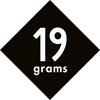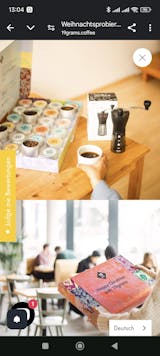Marianne Ryan (Headbarista, 19grams Berlin) and Sascha (Co-Founder, Tres Cabezas Berlin) attended the Cup of Excellence in Rwanda in June and cupped the country's best coffees in the international jury. Today we meet Marianne for a quick chat.
Marianne. You and Sascha were at the Cup of Excellence in Rwanda in June. What was it like?
Rwanda is an amazing country with many facets in terms of landscape and culture. It's amazing how much positive energy the people there have when they walk through the streets. Of course, I noticed the discrepancy between me, as a coffee tourist who can cup freshly made coffee with clean water, and the person across the street who doesn't even have a water pipe in his hut. It does make you think. However, I have read up and found out that over 40% of the gross domestic product is brought in with the export of coffee. And that this percentage is steadily increasing. So the more coffee we cup and buy and the better the quality develops and the coffee can then be sold for more money, the greater the likelihood that the person down the street will also get a water pipe in his hut. That may sound a little soft, but for me it made the discrepancy bearable.

I understand, I feel the same way. That's why I can't for the life of me go shopping in Asia or Africa with big chains, but always try to get everything from the small retailers. Eat local, drink local, support the people.
Yes. I think that's the way to be on the right side. The coffee farmers in Rwanda are mostly women. They often farm only 1 hectare of land, if that. Then they take their harvest to the nearest washing station and get paid. That is their income until the next harvest. There are many programs in Rwanda for women where they receive support and learn how to cupp coffee, grow it properly, and how best to sell coffee and most importantly where. These programs, such as BUF or SPREAD help many single women who lost their families and husbands in the genocide to feed their children. The courage for self-determination is there in any case! This is a good development.
How were the coffees?
In the national round, close to 250 coffees were submitted, which shows how big the coffee industry is in the small country of Rwanda. We, from the international jury, then had 60 coffees on the table. In terms of taste, they could be classified in two directions. On the one hand, there were coffees that were fruity, full and with wonderful citrus aromas, such as oranges and grapefruits, and on the other hand, we cupped coffees that had an extremely clean cup and carried aromas of black tea. Sascha liked these better, I must say that I found both directions very interesting and exciting in terms of taste.

What types of preparation were there?
Washed coffees only. In Rwanda, it is forbidden by law to export naturals. The NAEB, or Ministry of Agrarian Culture, wants to prevent poor quality. The NAEB is currently putting a lot of money into research to minimize the Potato Taste defect that is common in Rwanda, and they are succeeding. We only had a total of 6 coffees on the table that had this defect and had to be eliminated from the COE. The Cup of Excellence cupping was really the bomb. Even though it surprised myself how much work it is! Getting up at seven every day, off to the bus at 7:30 and then cupping for 5 hours and not losing your taste buds. Hahaha, that was a good training for me!





